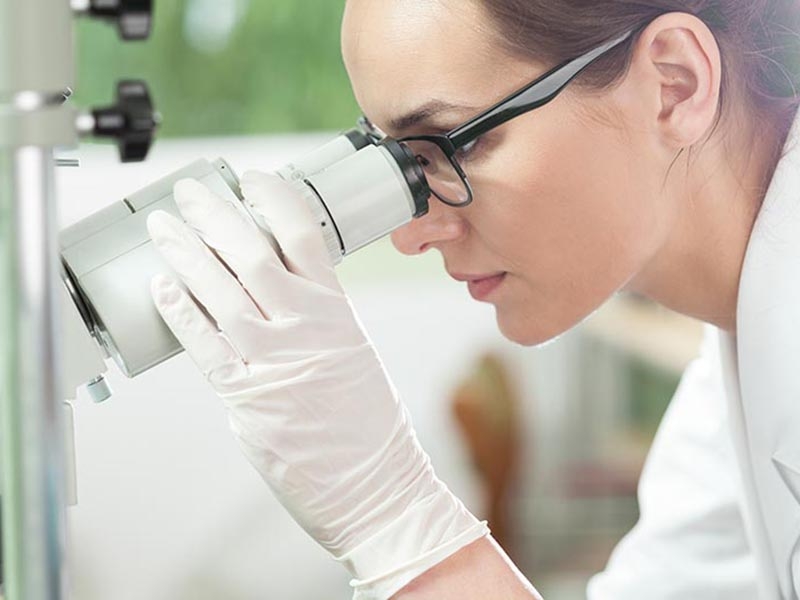
Colposcopy
A Colposcopy is a medical procedure used to closely examine the cervix, vagina, and vulva for signs of disease, particularly after abnormal results from a Pap smear. The procedure involves using a colposcope, a special magnifying instrument that helps healthcare providers detect abnormalities in the tissues, such as precancerous changes, inflammation, or lesions.
Colposcopy is often recommended when a Pap test reveals abnormal cervical cells or when a patient has other symptoms, such as unexplained bleeding or lesions in the genital area. The goal of the procedure is to identify potential problems early, allowing for timely intervention and treatment.
Types of Colposcopy
Diagnostic Colposcopy
A Diagnostic Colposcopy is performed when a Pap test or HPV screening shows abnormal results. The colposcope allows the doctor to examine the cervix, vagina, and vulva in greater detail to determine the cause of the abnormal findings. During the procedure, the healthcare provider may apply a mild solution, such as acetic acid (vinegar), to highlight abnormal areas of tissue. If any areas appear suspicious, a small Biopsy (tissue sample) may be taken for further analysis.
This type of colposcopy is crucial in detecting early signs of cervical cancer, precancerous changes (such as cervical dysplasia), and other conditions that may require treatment. The entire procedure typically takes about 15 to 30 minutes and is performed in a healthcare provider’s office. While most women feel no pain, some may experience mild cramping or discomfort during the biopsy.
Therapeutic Colposcopy
A Therapeutic Colposcopy is done not only to diagnose but also to treat abnormalities identified during the examination. If the colposcopy reveals precancerous cells or other concerning tissue, the healthcare provider may perform a procedure such as loop electrosurgical excision procedure (LEEP) or cryotherapy to remove or destroy the abnormal cells.
In these cases, the colposcopy serves both a diagnostic and therapeutic purpose. By combining diagnosis with treatment, therapeutic colposcopy helps prevent the progression of cervical abnormalities into more serious conditions. The procedure is generally quick, but the treatment may cause mild cramping or discomfort for a short period after.
Advantages of a Colposcopy
Colposcopy offers several benefits:
- Early detection: Colposcopy is one of the most effective methods for detecting cervical dysplasia and precancerous changes early, allowing for timely intervention.
- Non-invasive: The procedure is minimally invasive and does not require any incisions, making it safe and easy for patients to undergo.
- Accurate diagnosis: When combined with a biopsy, colposcopy provides a highly accurate diagnosis, helping healthcare providers determine the appropriate treatment plan.
The procedure typically takes 15 to 30 minutes and is done in an outpatient setting. Recovery is quick, with most patients returning to normal activities immediately afterward.
Pre- and Post-exam Care
Pre-exam care: To prepare for a colposcopy, patients are usually advised to avoid sexual intercourse, douching, or using vaginal medications for 24 to 48 hours before the procedure. It is also recommended that the procedure be scheduled when the patient is not on her period, as menstrual blood can interfere with the examination.
Post-exam care: After the procedure, patients can resume most normal activities right away. If a biopsy is taken, some patients may experience light bleeding or spotting for a few days. Avoiding heavy exercise, sexual activity, and tampon use for about a week after the biopsy is generally recommended to allow the cervix to heal properly.
Frequently Asked Questions (FAQ)
1. Is a colposcopy painful?
Most women do not experience pain during a colposcopy, though some may feel mild discomfort or cramping, especially if a biopsy is taken.
2. How long does it take to get biopsy results?
Biopsy results are typically available within 1 to 2 weeks. Your healthcare provider will contact you to discuss the findings and any necessary follow-up care.
3. What happens if the colposcopy shows abnormal cells?
If abnormal cells are found, your healthcare provider may recommend additional testing or treatment, such as LEEP or cryotherapy, to remove the abnormal tissue and prevent the development of cervical cancer.
Colposcopy Services at Clinic Consultation
At Clinic Consultation, our experienced healthcare providers offer comprehensive colposcopy services to diagnose and manage cervical abnormalities. Whether you’re undergoing the procedure after an abnormal Pap test or experiencing symptoms that require further investigation, our team provides expert care in a safe and supportive environment.
Book an appointment today to schedule your colposcopy at Clinic Consultation and take control of your cervical health.
Click the button below to schedule your appointment online.